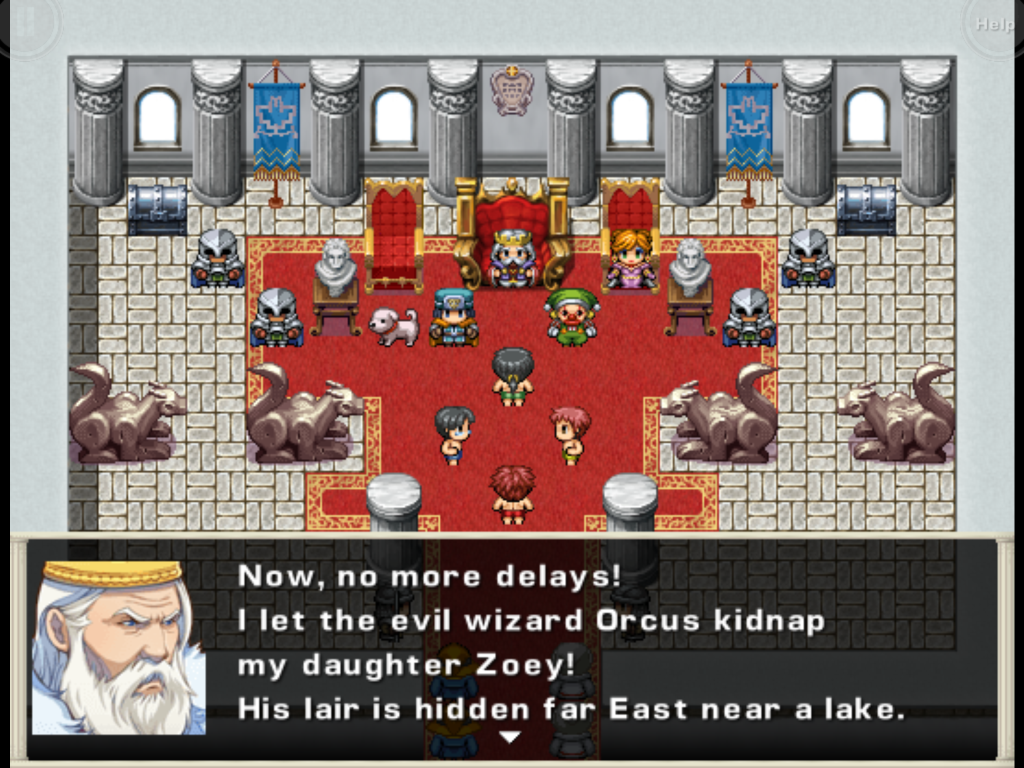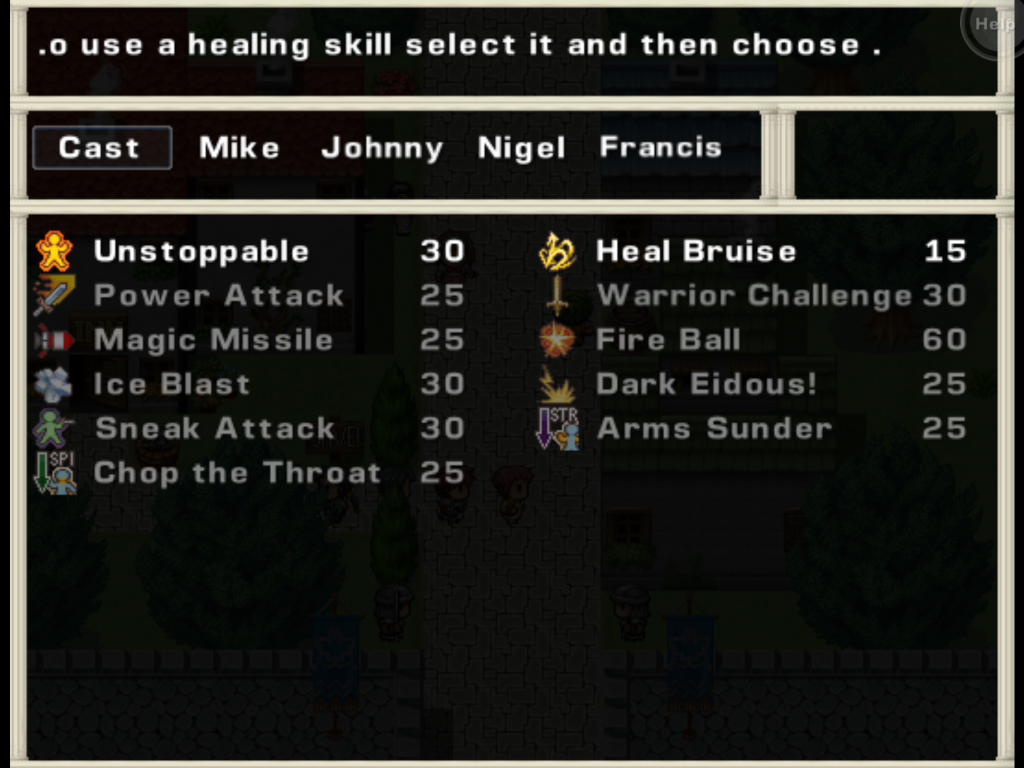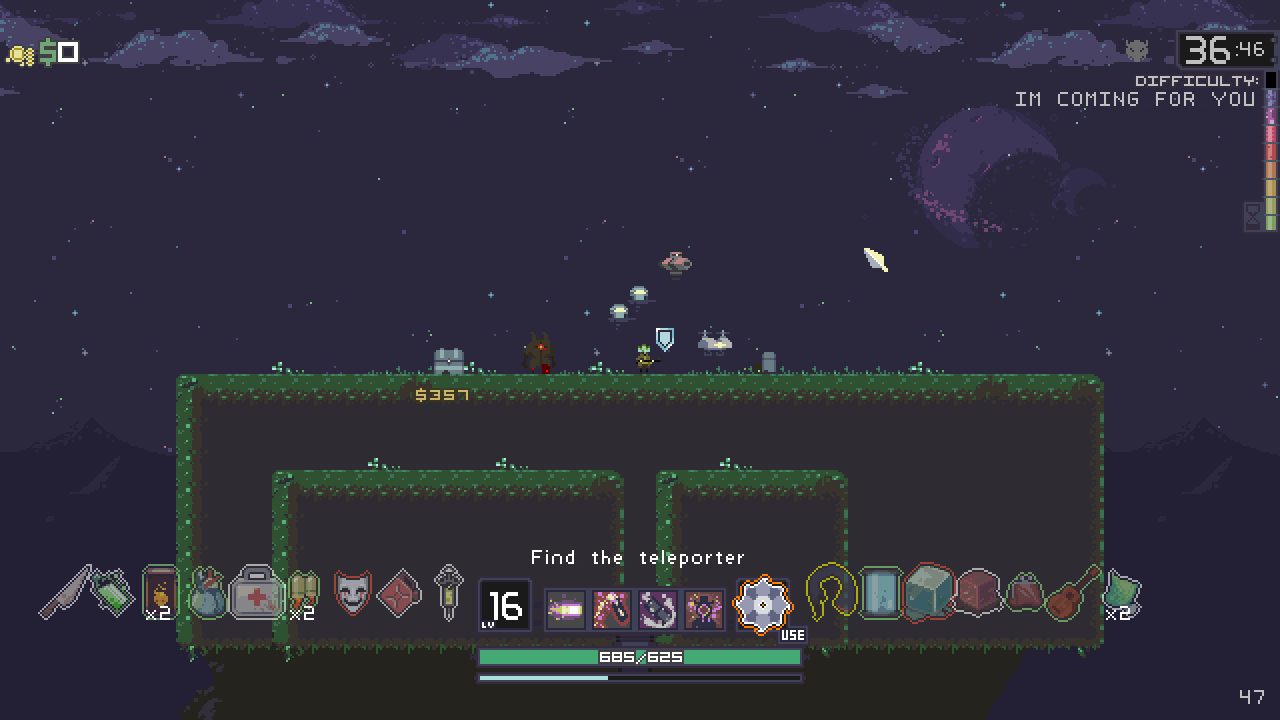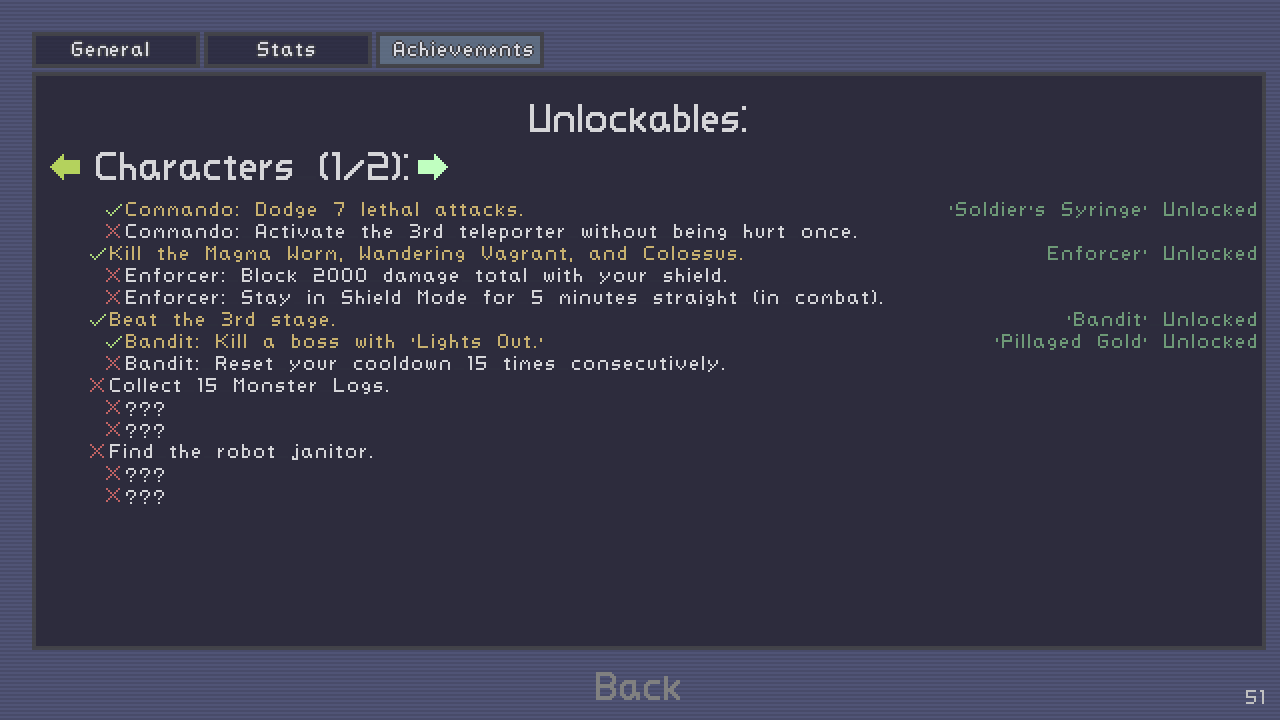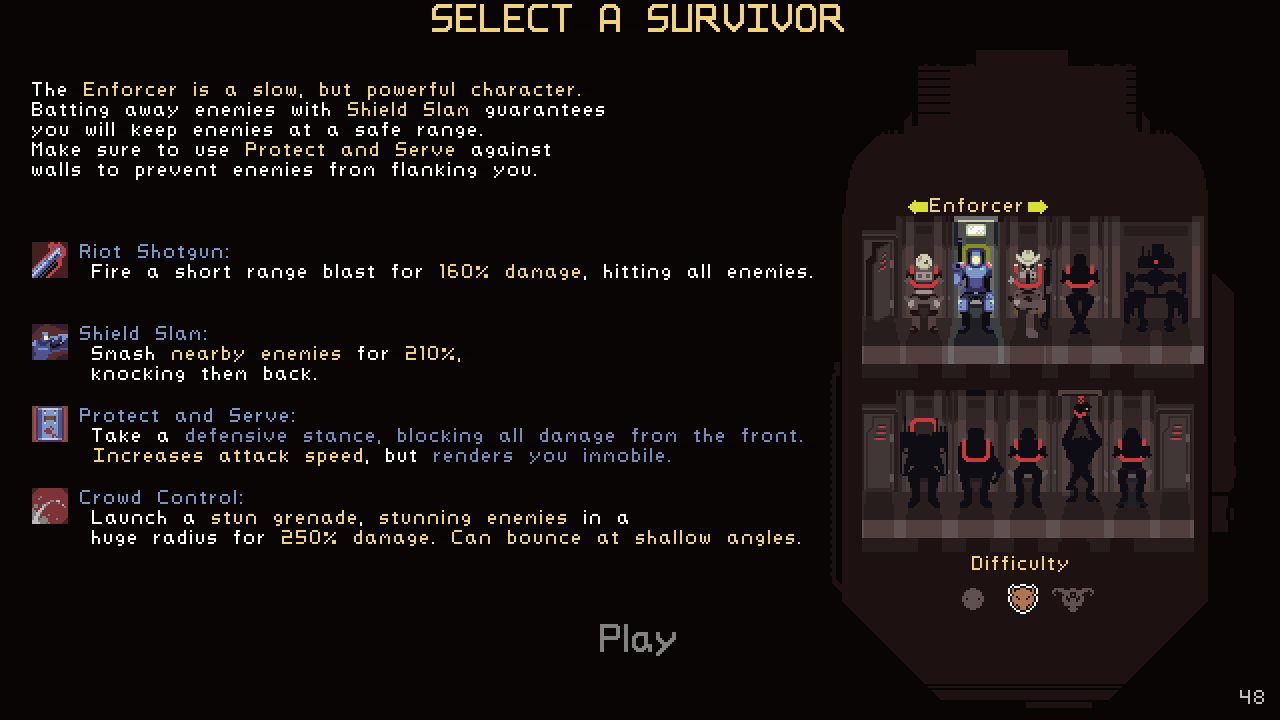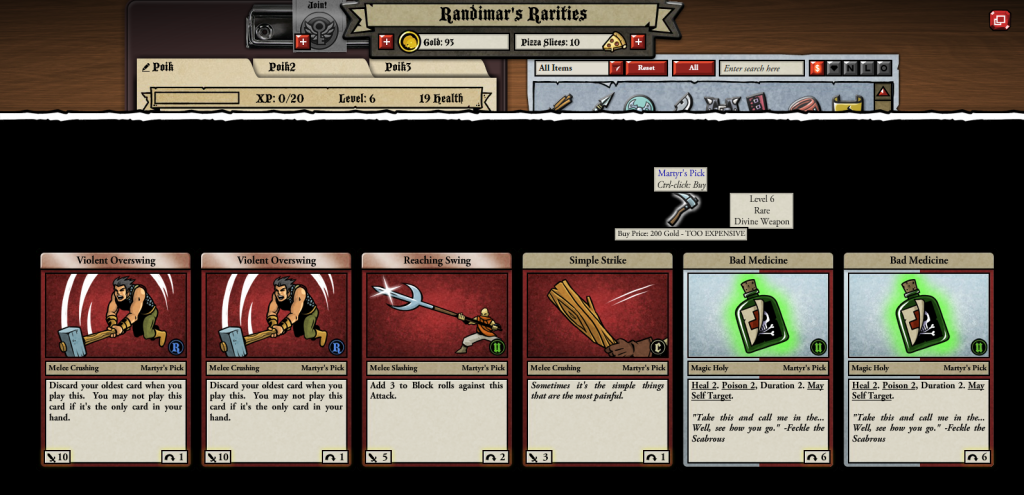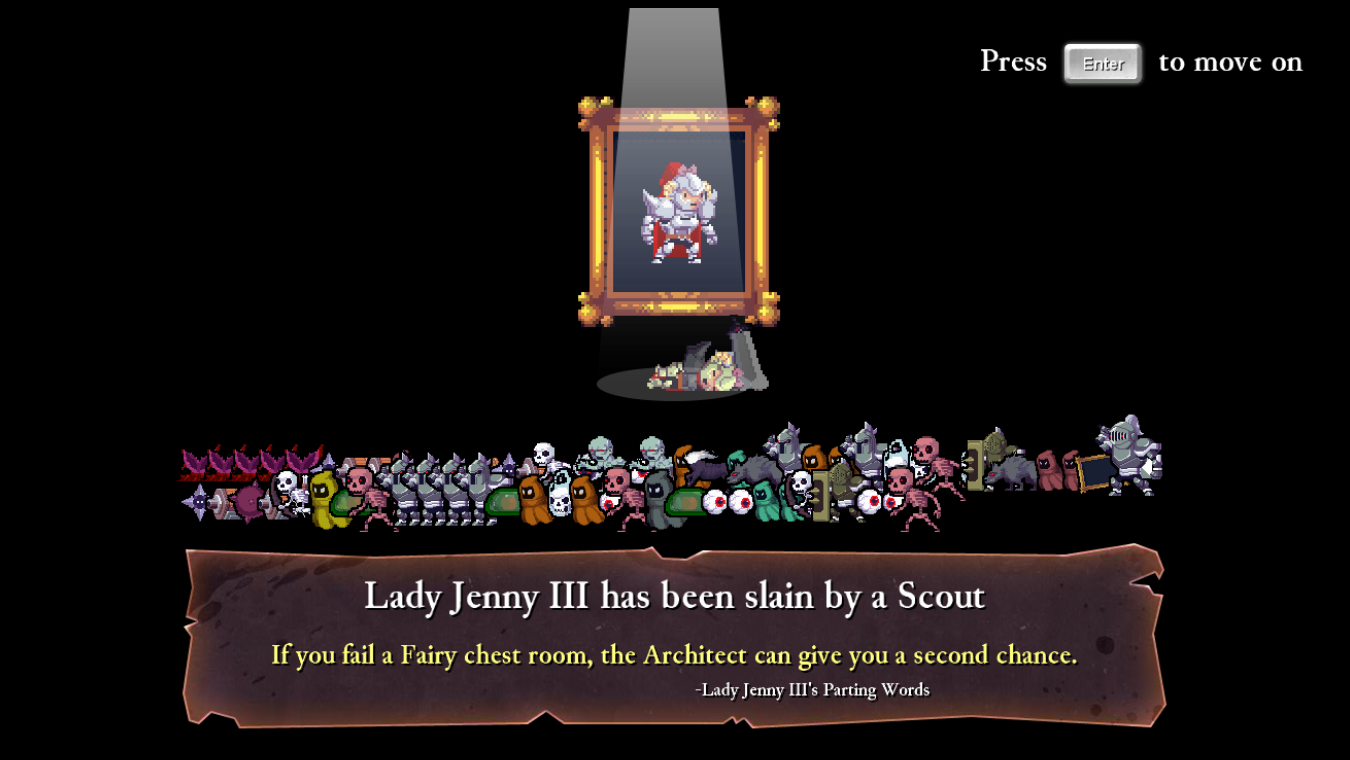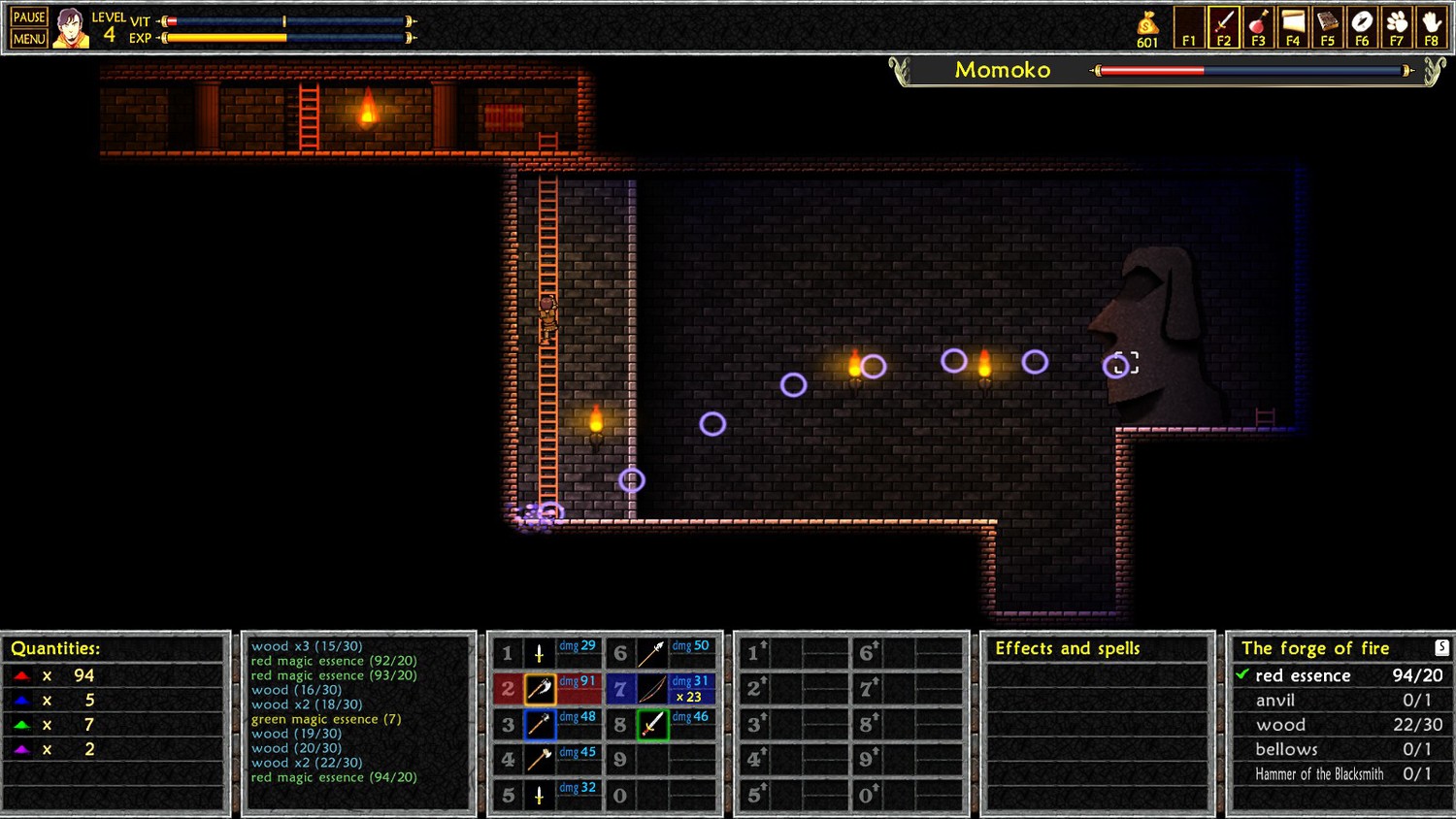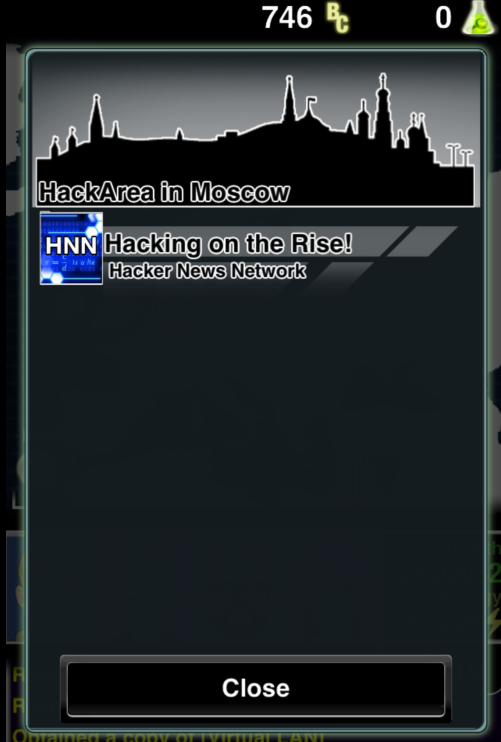I quite enjoyed PAA:ORSPD episode 3, made by the guys that did Breath of Death and Chtulu saves the world, it was a neat little turn-based RPG with some active time battle elements and some humour. At the end of the day I blasted through it, a bit confused by the plot but quite enamoured by the job system. What about this episode 4? It’s not as good, sadly.
I had heard good things about EMPIRE: The Deck Building Strategy Game and decided to check it out! In my head, a strategy deck building game would have you start a campaign with very little cards and as you win fights you'd add more cards to your inventory until you beat the story. That idea sounded interesting in my idea; sadly for me my expectations weren't met. I was wrong about what this game was going to be, and what I got instead was too frustrating to keep me interested.
I'm on a bad streak of iPad games nowadays, okay, Devil's Attorney was great, but the games I've been trying out recently... They're not very good. Take Doom & Destiny for instance, I'm kinda baffled how a game full of RPG maker assets could land on iOS. Can you even use RPG Maker to make iOS games? Probably not, but this game feels like it. Also it's pretty immature and dumb, like Unepic was. I probably would've cared much more about it if it played the story straight.
Risk of Rain has great core gameplay mechanics. It's a platformer/roguelike where you pick a character then need to find teleporters to get back to your ship without dying. There are tons of items you can randomly find during your journey, each class has different abilities, there are tons of unlockables / challenges, the game is pretty difficult but rewarding and I really love its style. It has, however, a fatal design flaw.
Devil's Attorney is a nice little turn-based RPG for iOS. You play Max McMann, a shady defense attorney that'll defend anyone. You go to cases, fight with the skills you have unlocked, and then gain money to buy items and furniture that allow you to unlock more skills. The writing is very funny and even if the randomness breaks the game a little, I've enjoyed it so much that I beat it in a few days.
A weird mix of Real Time Strategy, light turn-based strategy elements, 3rd person shooter and political management story driven game, Divinity: Dragon Commander excels at some parts of it. The talking about storytelling are excellent and you really want to know what's coming next, but the other parts of gameplay felt lacking for me.
Even with its buggy programming and weird tutorial decisions, Marvel Puzzle Quest is great. This iOS/Android free to play puzzle game offers a variety of characters, levels, upgrades and gameplay systems that made me play it a ton. The free to play hooks aren't too bad and don't remove from a good experience matching gems and being the hawkeye.
A bit like King Cashing, Tower of Fortune is a game based on slot machines. You explore maps by spinning slots, you fight enemies that way, you collect loot, forge items and interact with the tavern by pressing a 'SPIN' button. The comparison stops there, though. While King Cashing was a fun RPG, this game is a brutal roguelike and dying means having to start all over (except if you bought a thing that saves your equipment when you die) and the game kinda feels unfair at times.
It's in Early Access, it's in Beta, call it what you will. The version of Mercenary Kings you can play right now is still loads of fun and seems feature complete enough for me to relate what I've experienced during my playtime with it. At it's core, MK is a mash-up of Borderlands, Metal Slug and Monster Hunter. The shooting is of the 2d sidescrolling variety, you have a ton of gun parts to customize your weapon with and you can capture enemies and killed monsters drop materials. It's not perfect, but it's not officially out yet.
Infinity Blade is pretty much a medieval/sci-fi version of Punch-Out. Depending of your equipped weapon, you have different options of blocking, dodging or parrying. Between fights, you gather materials, gold bags and other items, you get experience and can level up, gaining skill points to place between health, shields, attack and magic, your gear also gains experience until it levels up and grants you more skill points. You can slot gems in certain equipment pieces, you can brew potions, upgrade your mastered gear, and much more. Even with all that, there's plenty I don't like in this game.
Shadowrun Returns isn't perfect, but it's pretty amazing. I describe it as a 'new-old' Role Playing Game, like the games I used to play when I was younger with some modern trappings here and there, but still a core that was enjoyable for the duration of it's short campaign. Oh and you can't save whenever you want, what's up with that?
Puzzle and Dragons is insanely successful, it seems. I've decided to try it out as soon as it went live on the Canadian app store, and my god, it is a load of nonsense. The core mechanic of the game (moving gems on a board) manages to be mostly luck-based and somehow less refined than old match-3 games and/or Tetris Attack and/or puzzle quest managed to do years ago. The monster collection part is also completely nonsensical and random but at the same time, vital to progress through the game.
CastleStorm is a weird mix of Angry Birds and strategy RPG elements. The goal of most levels is the same; to destroy the enemy's castle. To do so, you fire projectiles, spawn units, use magic and try to complete special objectives to gain more money and more stars. The game has some fine ideas but it's a bit unsure of what it wants to be and so it doesn't do anything particularly well.
Card Hunter is a browser-based board game with CCG and RPG elements. You control a part of three little figurines and work your way through a campaign of battles, defeating monsters, getting loot and experience and doing it all over again. I loved it enough to keep playing for a good while, but frustrating battles, low speed of character progression and strange business models make me doubt I'll play it much longer.
Rogue Legacy is a roguelike platformer with plenty of very interesting mechanics. The way your new characters come to life when your old ones die, the exploration of the castle, the options you have to customize your characters, everything is almost flawless. I've found some issues here and there that I would maybe tweak a little for the way I like to play games but otherwise it's a blast.
Knights of Pen and Paper is a turn-based RPG with a twist that makes you the players of a pen and paper tabletop RPG. Mixing story beats and concepts from the real world and a fantasy world, it's an addictive little game with very few issues that I played for a bunch of hours, broken here and there by technical issues that had me redo entire quest lines.
UnEpic is a Metroidvania with some interesting gameplay concepts brought down by an uninteresting story and immature characters, but mostly disappointing because of some key systems that I didn't enjoy playing around even though it felt like a Castlevania game by moments.
Healer: A Light In The Darkness said it was going to make me the healer in a World of Warcraft-like raid. One guy, using multiple purchasable skills and different tiers of talents, helping a team of tanks and DPS characters to fight enemies. That sounded like fun! So I went and tried it.
I feel like there's a trend with iOS games that I'm unsure about. The trend of having subpar core mechanics but really great fluff, random loot, leveling systems, skill trees and collectibles are added to games with weak gameplay loops. Nameless: The Hackers RPG is one of these games, I love everything around it but the main thing you do in it - fighting in turn-based battles - is poor. Also the anime style is not what I'd like in that kind of game but that's not relevant, design-Wise.
EvoLand is a small indie project that was greenlight to Steam talking about 'the story of the evolution of RPGs'. I liked the idea so I decided to take a look at it. I love games where you evolve through concepts by way of unlockables and I love RPGs, and EvoLand scratched both those itches with varying degrees of success.







